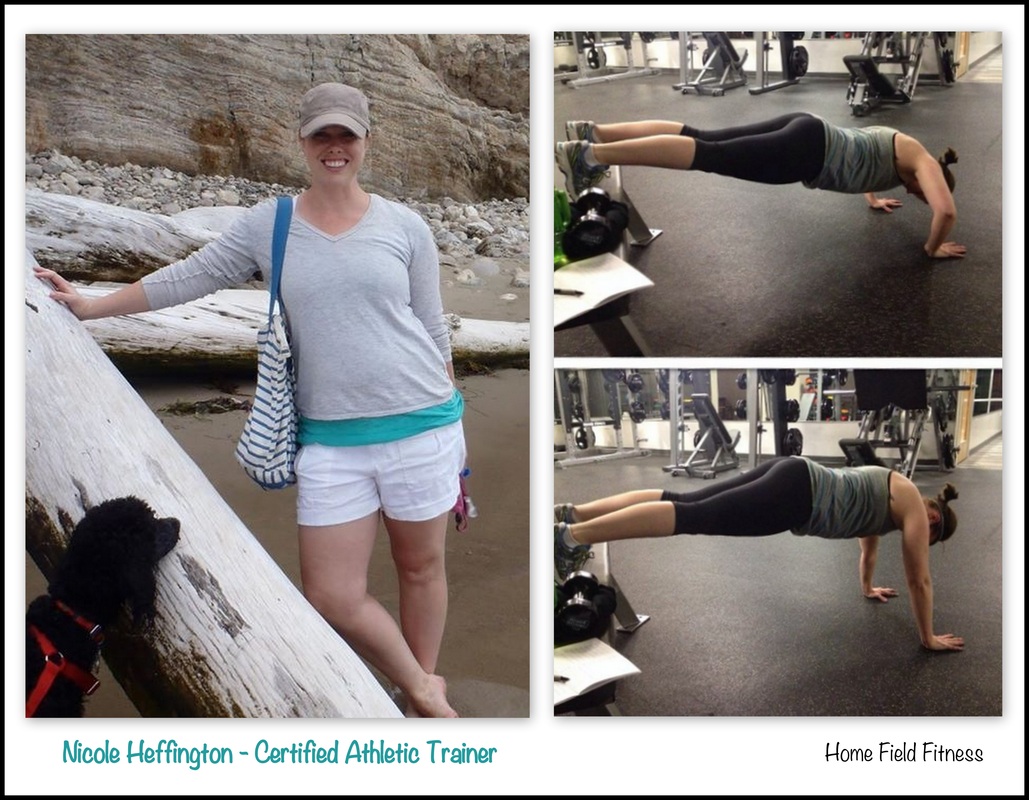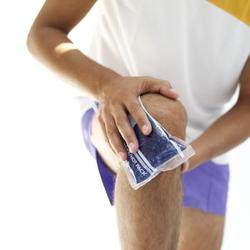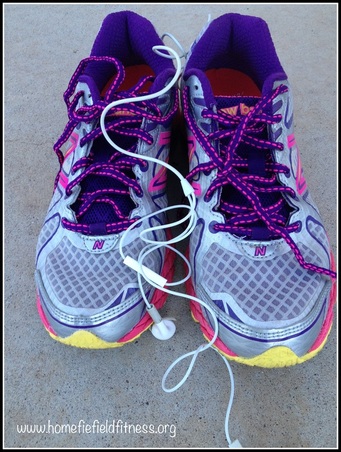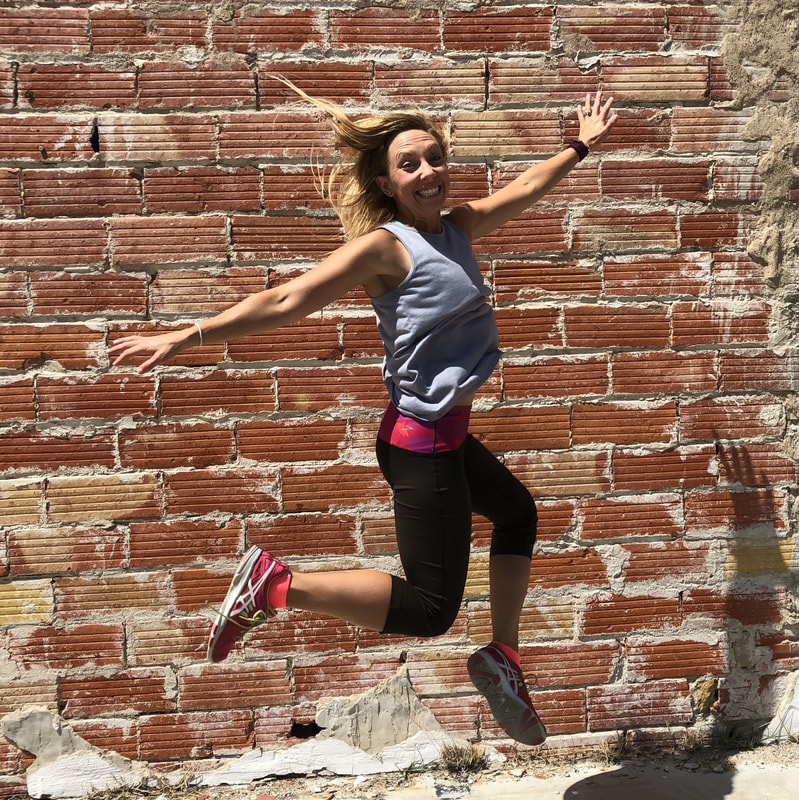It's time for another round of "Ask the ATC"! I'm featuring another awesome athletic trainer - and this is your chance to have an expert give advice on common injuries. I'm excited to introduce you to Nicole Heffington - she has both her bachelors and masters degrees in athletic training. I actually met Nicole when I was a wee high school freshman and she was a way-cool junior. We worked in the athletic training room together, and not only did she teach me a lot about training - we also became great friends!
Nicole's Bio
My name is Nicole and I have been a certified athletic trainer for 6 years. I have both a bachelors and masters degree in athletic training. After my masters, I completed a one year clinical residency for athletic trainers as physician extenders. I have worked in all types of settings including pee-wee football, high school, collegiate and professional sports. I am currently working as a physician extender for a busy sports medicine orthopedic surgeon. I've recently started my own fitness journey as a competitive bodybuilder. I competed in my first bikini competition last year, and plan to compete this year. I love being an athletic trainer and love helping people.
Ask the ATC - Knees
Help! I've started training for my first half marathon. Lately, about halfway through my run, my knee really starts to hurt. It gets really stiff after my run and getting around the rest of the day can be painful sometimes! What can I do?!
Q: How do most knee injuries occur?
A: Knee injuries are one of the most common injuries we treat in our orthopedic clinic. Injuries range from acute injuries (twisted knee, falling etc) to more chronic in nature (years of knee pain without a known injury) like overuse. Knee pain in runners can often be chronic in nature, or simply from the incorrect footwear or running mechanics.
Q: How do I know if I should go to the doctor?
A: You should never feel silly for going to the doctor to have an injury looked at. If you are having persistent pain that does not seem to go away with your basic RICE (rest, ice, compression, elevation) and anti-inflammatory, it would be worthwhile to make sure nothing is going on. If you have an acute injury where there are feelings of instability, or swelling that won't seem to go away despite rest, it would be a good idea to be evaluated.
Q: What can I do to reduce the pain?
A: The first thing I would recommend would be to stop the activity that is causing pain. Ice is your friend. Ice can bring down inflammation and act as a pain reliever. If your stomach can tolerate an anti-inflammatory like Advil or Aleve, try taking as directed. Try to find a cause to start of your pain. Have you started training differently? Are your running shoes too old or worn out? Have you been getting adequate recovery between training sessions? These are all important steps and questions to help reduce pain.
Q: Can I still keep up with my running?
A: If running seems to be causing pain, try changing the type of workouts you do. There are many ways to train to keep up your cardio. Swimming is a great alternative that is very low impact on your knee joint. Joints like to be moved, so any activity is better than no activity. The lower the impact to your joints the better. Try mixing in low impact or minimal impact activities such as swimming, biking or even walking. When you are pain free, start to build back in your running in a little at a time. A good rule of thumb is to increase training by 10% each week, whether that is time or distance. This way, you can adjust your training as needed if your pain starts to return, or to make sure that your pain does not return at all.
Q: Are there things I can do to help me recover faster?
A: Be healthy!! Along with rest and activity modification, it is always important to eat healthy. Make sure to eat a well balanced diet, take a multi-vitamin and fish oil and drink plenty of water. The more well balanced you are, healthy and live an active lifestyle, the better your pain will be. There are many supplements out there that market to help with knee and joint pain. Make sure to read about the products and do your research.
Q: How can I keep my knees pain free?
A: Evaluate your training. There are many groups and running clinics to help with running mechanics, technique and support. If you are having pain, don't be afraid to get your knee evaluated. It could be something as simple as getting a referral to a therapist that can address full body mechanics, or you might find that there are underlying conditions such as arthritis. Remember, it does not always have to be "no pain, no gain." Be smart about your training and listen to your body! Happy running!!
Disclaimer: Please remember I am not a doctor or certified medical professional. My hope is to provide information from other experts to help my readers. As always, do not treat this as medical advice, and consult your doctor with any injuries, concerns or for a diagnoses.






 RSS Feed
RSS Feed
